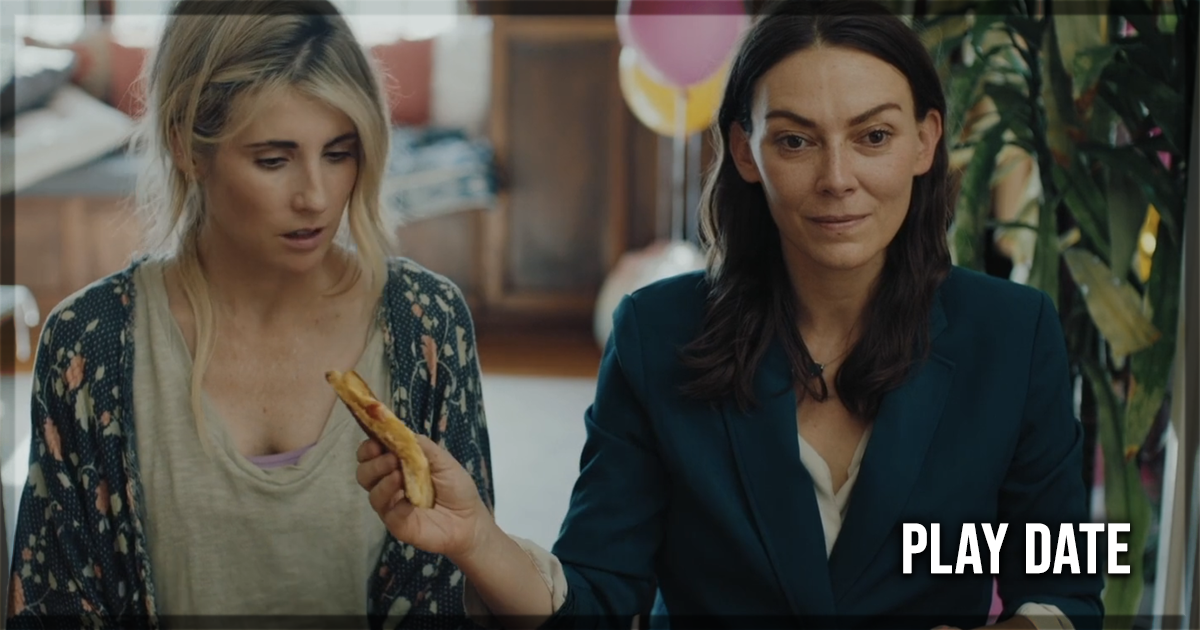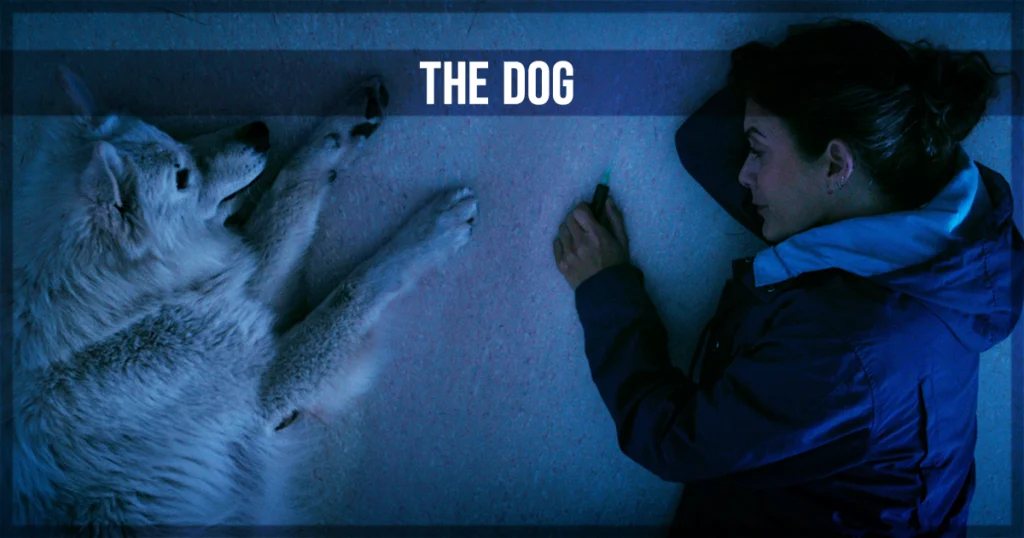One of the most devastating issues society is facing today is gun violence. It strips away the sense of safety and security from communities, tearing families apart and causing long-lasting trauma to survivors. There have been several movies and TV shows depicting how gun violence can be so lethal for a community and the entire country. Most of the titles talk about how the shooting took place, how many people died, and its aftermath. However, the recent short film, Play Date, by co-directors Amberlee Colson and Laura Campbell takes a unique approach by putting violence behind and focusing on two grieving mothers.
The movie, which had its premiere at this year’s HollyShorts Film Festival, is the heart-wrenching story of two mothers. The narrative of the film is driven by the tense encounter between the Host (played by Amberlee Colson) and the unexpected Guest (Laura Campbell). As the film progresses, viewers get to know that these two were once best friends. However, their friendship is affected by a traumatic event in which one woman’s daughter survived while the other did not. What viewers witness next is a profound exploration of grief and trauma in the most authentic way possible. There are certain situations in our lives where we don’t know how to express ourselves because we are too distressed about one particular thing that happened to us. Play Date explores that feeling and takes audiences on a journey that’s heart-wrenching, but also has a few moments of joy.
Play Date opens with a seemingly gentle knock at the door. However, that simple meeting between two friends set the foundation for a shattering exploration of trauma, human emotions, and how people deal with grief. The premise of the film is enough to create a palpable tension that infiltrates every frame of the film. On the other hand, the emotional quotient of the story is heightened by the magnificent performances of the film’s lead actors.
The arrival of the guest unannounced at the Host’s home and the initial awkwardness between them is almost suffocating. But that is exactly when the film reaches its true potential. The film beautifully uses silence and subtle gestures to convey the unspoken feelings and anguish both women carry. Their conversations are burdened with a touch of guilt, longing, and resentment, making every word exchanged feel like a step closer to an emotional abyss. The film doesn’t feature many dialogues, but it still manages to convey what it wants to. Silence is a very beautiful thing and it can bring much-needed depth to a scene or an interaction. The co-directors and the writer, Gavin Broady, masterfully use that element to showcase strength, allowing the viewer to feel the weight of the unspoken.
One of the strongest aspects of Play Date is the reenactment of the final play date that the daughters before the unsettling event. That long sequence serves as the emotional core of the movie and is haunting to the core because it forces the women to confront the reality of what they have lost and the varying paths their lives have taken since that fateful day. The choice made by the co-directors to focus on the details of the reenactment is deeply emotional and resonates with people who might have witnessed such catastrophic events. The way these grieving women play with the toys their children played with or the last meal they had before the gun violence infuses the narrative with a deep sense of sorrow and desolation.
These moments explain how simple things can be of utter significance after such tragedies. Despite keeping things simple and subtle, the movie doesn’t shy away from exploring the dark aspects of loss and how sorrow can become a lifestyle for some. In between those darker moments, the film also makes it clear how people need empathy and human connection in coping with immense loss. Apart from writing, the cinematography by Audrey Biche is another aspect that enhances the viewing experience. It creates an atmosphere that is deeply moving.
Amberlee Colson and Laura Campbell as the leading ladies are phenomenal. They extraordinarily convey the hidden pain and sadness of these grieving mothers. Campbell showcases her emotions in an unsettling way, but she doesn’t go over the top and makes viewers realize how people behave in certain situations. Meanwhile, Colson is very subtle in showing her feelings and supports her friend when she needs it the most. The chemistry between Colson and Campbell is one of the biggest reasons why this story feels so impactful.
Although viewers get to know that gun violence was the reason behind the daughter’s death, Play Date never really goes back and shows what happened. To be honest, that’s a very good approach to telling a story like this and just focusing on how it ruins everything.
All in all, Play Date is not just a movie that explores grief and trauma. It raises important questions about how we process loss, how we relate to others who have experienced similar pain, and whether it is ever truly possible to move on from such a devastating event. If, as a viewer, you are looking for easy answers, this movie is perhaps not even close to it. However, it does allow you to reflect on yourself and makes room for emotional catharsis. The makers skilfully use interactions to build tension, slowly peeling back layers of emotion until the character and the viewers are left vulnerable. Even though it’s just 20 minutes long, it manages to come forward with a nuanced take on pain that even feature-length movies cannot. ONE OF THE BEST FILMS OF THE YEAR!!!
Play Date recently screened at the HollyShorts Film Festival.
You might also like…
‘The Dog’ Review: Danielle Baynes’ Unflinching Look At Veterinarians and Their Struggle (HollyShorts)


